New Year’s Eve is the last day at the end of the year, also known as New Year’s Eve, New Year’s Eve, New Year’s Eve, and New Year’s Eve. New Year’s Eve is a time to get rid of the old and get new, reunite with the family and offer sacrifices to ancestors. Tomb-Sweeping Day, July 30 and Double Ninth Festival are traditional festivals to offer sacrifices to ancestors in China. It is connected with the beginning and end of the new year, which is called "the end of the poor month and the end of the new year". It is the eve of the new year and an important time junction to get rid of the old and welcome the new year. Because New Year’s Eve often falls on the 29th or 30th day of the twelfth lunar month, it is also called New Year’s Eve. "One night is even two years old, and five hours is divided into two years." On New Year’s Eve, the old year ends here, and the next year will be replaced by a new year. Sticking Spring Festival couplets, observing the New Year’s Eve, and lucky money … all these customs can’t be less!
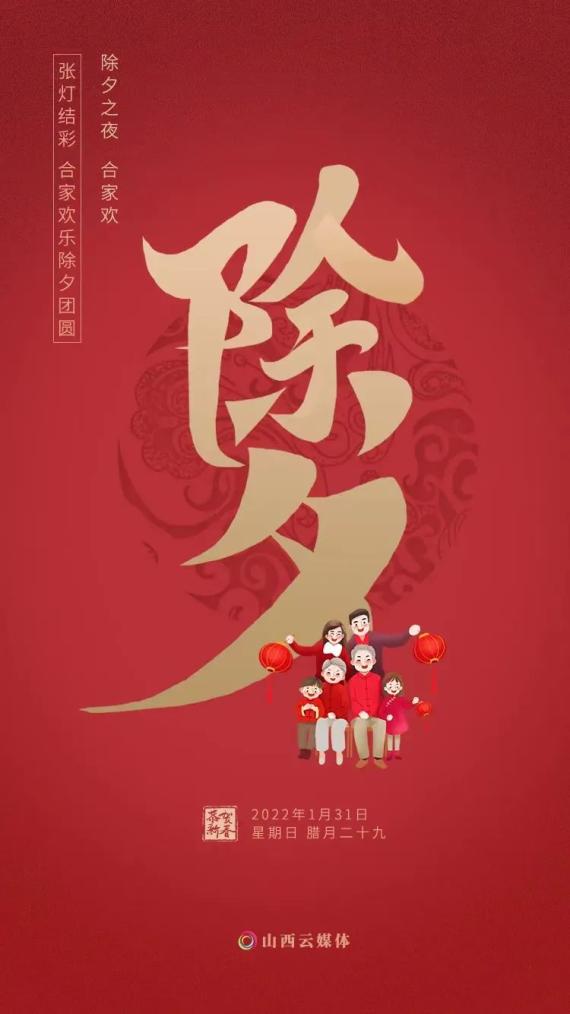
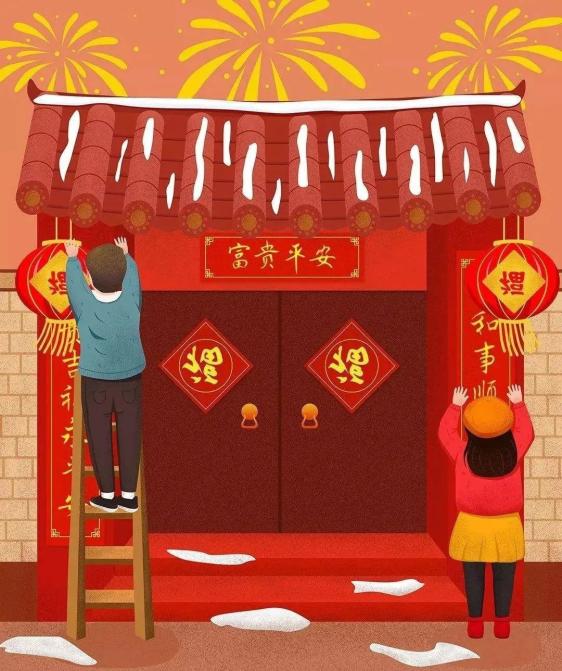
year
draw
spring
unite
paste
rise
come
Spring Festival couplets are also called door-to-door couplets, spring stickers, couplets, couplets, etc. They depict the background of the times and express good wishes with neat, dual, concise and exquisite words, which is a unique literary form in China. Sticking Spring Festival couplets comes from ancient peach symbols. Every spring festival, every household should select a pair of red Spring Festival couplets and stick them on the door to add festive atmosphere to the festival.
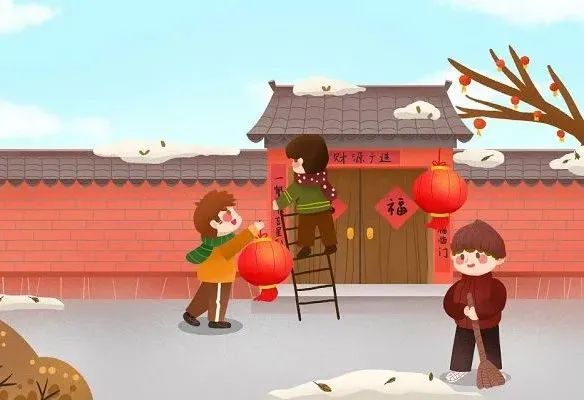
red
red
fire
fire
hang
light
cage
The lanterns in China, also known as lanterns, originated in the Western Han Dynasty more than 1,800 years ago. Every year before and after the New Year’s Eve, people hang red lanterns symbolizing reunion to create a festive atmosphere. On New Year’s Eve, red lanterns are hung at the door, the hall is burning with flaming fire, candles or oil lamps are lit, and the family talks around the table.
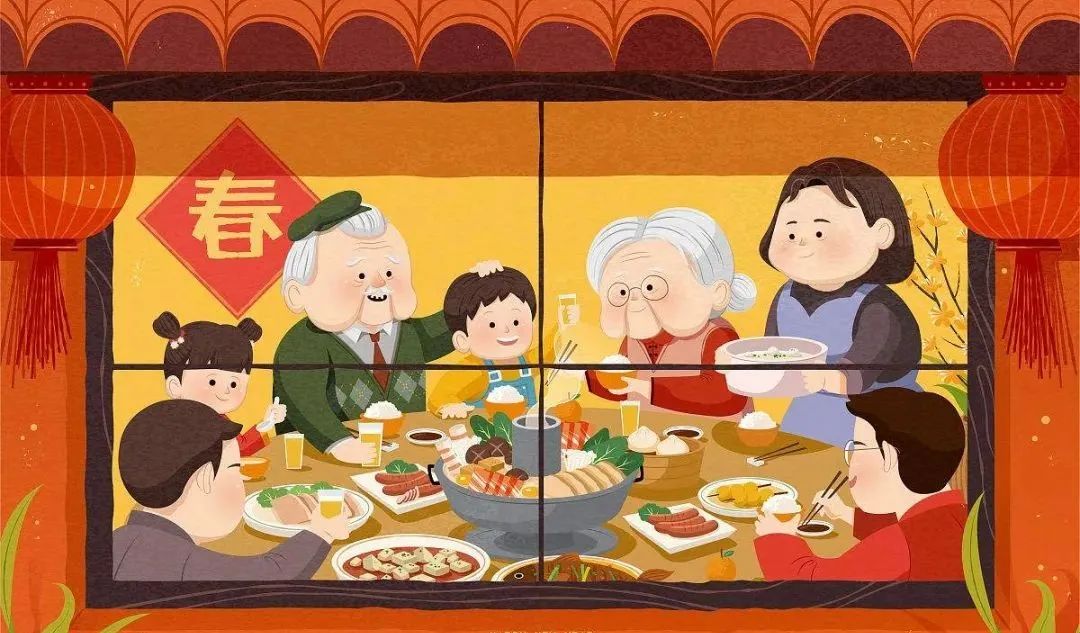
that
happy
melt
melt
year
night
meal
On New Year’s Eve, eating New Year’s Eve is the most lively and enjoyable time for every household in the Spring Festival. The sumptuous New Year’s dishes are filled with a table, and the family is reunited, sitting around the table and having a reunion dinner. There are big dishes, cold pots, stir-fry and snacks on the table, and the hot pot is boiling and steaming, which indicates that the coming year is booming; "Fish" and "Yu" are homophonic, which not only symbolizes "auspicious and festive", but also implies "annual surplus"; Radish, commonly known as vegetable head, wishes a good head; Frying food wishes the family a prosperous life, such as "cooking oil with fire". Northerners are used to eating jiaozi on New Year’s Eve, which means "making friends at a younger age". And because the white-flour jiaozi is shaped like a silver ingot, a pot of pots on the table symbolizes the meaning of "making a fortune in the New Year, and the ingot rolls in".
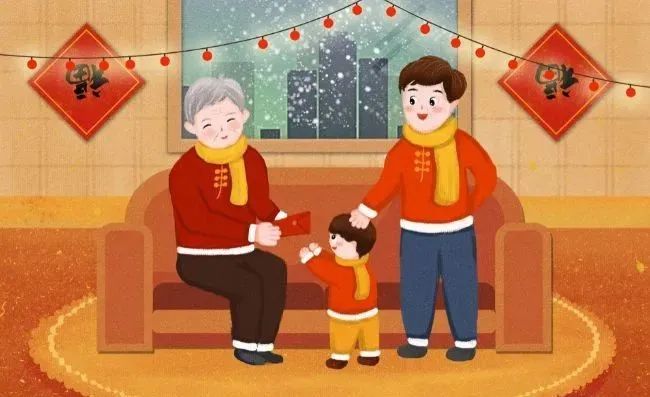
joyous
joyous
happy
happy
press
year
money
Lucky money is given by the elders to the younger generation. After eating the New Year’s Eve dinner, everyone is not allowed to leave at the table. When everyone has finished eating, the elders will give it to the younger generation and encourage their children and grandchildren to learn and improve in the new year. Because "old" and "precious" are homophonic, the elders hope that the lucky money can exorcise evil spirits and avoid disasters, and bless the healthy growth of children. "Lucky money" first appeared in the Han Dynasty, and it is a wearable coin-shaped ornament. During the Republic of China, the lucky money became the "welfare money" given by the elders to the younger generation.
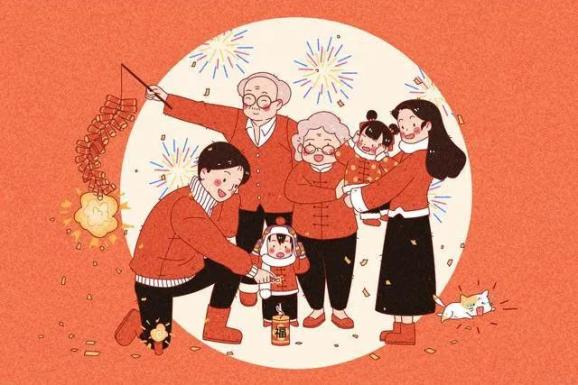
explode
a kind of bamboo
sound
sound
welcome
new
spring
There is a saying among the Han people in China that when the new year comes, the first thing for every household to open the door is to set off firecrackers, so as to get rid of the old and welcome the new with the sound of firecrackers. Firecrackers are a specialty of China, also known as "firecrackers", "firecrackers" and "firecrackers", which have a long history of more than 2,000 years. Setting off firecrackers can create a festive and lively atmosphere, which is a kind of entertainment in festivals and can bring happiness and good luck to people. Today, the concept of "Green Spring Festival" is deeply rooted in people’s hearts, and traditional firecrackers have also been replaced by colored lights, lanterns, electronic firecrackers and other products. As the Spring Festival approaches, the flavor of the year is stronger and fresher.
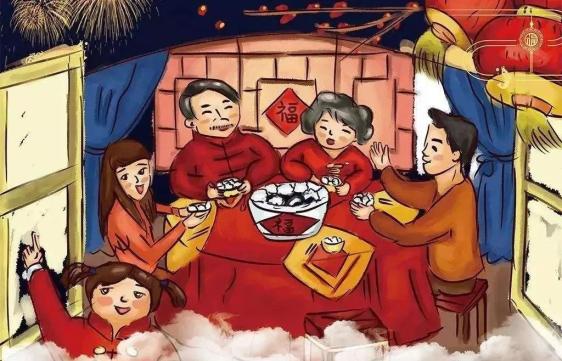
society
society
circle
circle
uniform
defend
year
Shounian, commonly known as "staying up late", waits for the arrival of the new year. "Year" was commonly used with "year" in ancient China. Year is year, and year is year. The custom of observing the age has a long history. In the old twelfth lunar month, on the thirtieth night, after eating the New Year’s Eve dinner, people did their jobs according to their own division of labor. Parents should preside over the worship of gods, buddhas and ancestors to welcome the "lower world of god". Children go outdoors to set off firecrackers and fireworks, while women are busy preparing noodles and stuffing for jiaozi. Busy, the whole family, old and young, sat around the stove, eating dry goods, melons and fruits, talking about the past and the present, playing cards and playing chess, and staying up all night, which is called "guarding the old age." It is said that the custom of observing the age was very popular in the Jin Dynasty.
The customs of the year have been changing.
But what remains unchanged is people’s good wishes.
On New Year’s Eve, the year-old ends that night.
This is the most China day and night.
It is a magical intersection between the old year and the new year.
A year of sorrow and joy will pass tonight.
A unified beginning and a new tomorrow.
At the end of this year
A glass of wine to send the old year.
wake up after a sound sleep
It’s a new day.
It’s another prosperous and auspicious New Year.
Say "Happy New Year" to each other.
Cartography: Anna
Original title: "Yinhu welcomes happiness, saying New Year’s Eve, family fun"
关于作者